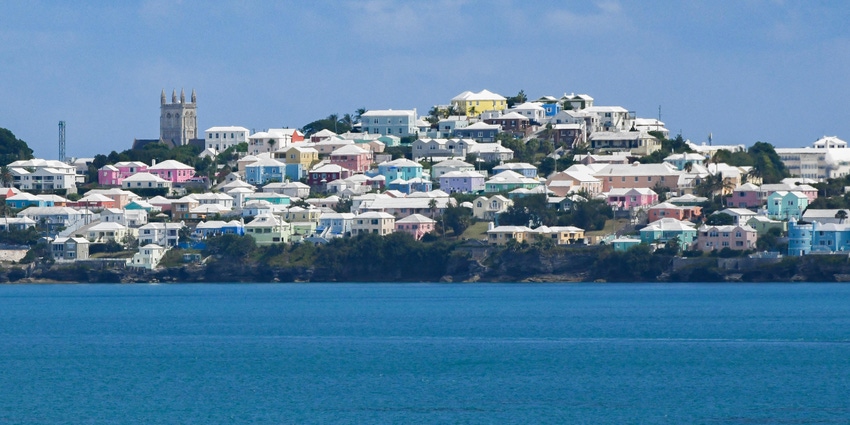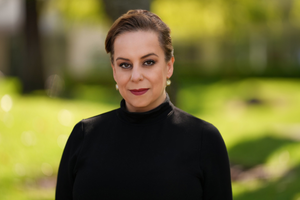Paradise boasts of 1Gbit/s open RAN 5G network
Paradise Mobile is working with Mavenir and AWS to build an open RAN 5G network in Bermuda. The company said its new network, launched in December, now supports 1 Gbit/s connections.

Paradise Mobile CEO Sam Tabbara has a message for the global mobile market: Open RAN works. And it works well.
In early December Paradise Mobile launched a commercial 5G network in Bermuda built on open radio access network (RAN) components from Mavenir and Amazon Web Services (AWS). The operator's promise: to build the world's fastest, most advanced 5G network.
And according to Tabbara, Paradise Mobile is well on its way to doing that. He said recent testing shows the company's peak network speeds reaching 1 Gbit/s, and Tabbara expects those figures to rise to 2 Gbit/s in the coming months as Paradise fleshes out its offering. Those speeds are faster than the speeds provided by Bermuda's incumbent operators, which largely run traditional RANs.
"The open RAN network is much faster," Tabbara told Light Reading this week.
Paradise Mobile's network in Bermuda represents another feather in Mavenir's cap. The Texas-based equipment vendor has been leveraging the open RAN trend to break into a market largely dominated by international behemoths like Ericsson, Nokia and Samsung.
Most of the world's open RAN deployments to date have focused on inexpensive coverage and 4G-equivalent speeds. But Tabbara said Paradise Mobile is using Mavenir's advanced Massive MIMO radios in a 64t64r configuration on its C-band spectrum holdings to offer speeds comparable to some of the world's fastest 5G networks.
Some people "didn't think this was actually possible," Tabbara said.
Beyond speed
But Paradise Mobile's goal isn't solely to prove the capabilities of open RAN specifications running in Mavenir's hardware and software products. Instead, the company aims to operate as a kind of external skunkworks operation for bigger companies that don't have the ability to set up a public, commercial network for such endeavors. Tabbara has said Paradise Mobile hopes to test cutting-edge telecom products and services that can then be used by bigger telecom providers internationally.
The company is making progress, according to Tabbara. It has already developed an application programming interface (API) platform that will allow third parties to develop applications for its network. That effort is noteworthy given that Nokia, Ericsson and the GSMA are also creating network API platforms to encourage enterprise customers to develop 5G-specific apps and services.
Paradise Mobile's efforts are also noteworthy in light of AT&T's decision to move to open RAN with vendor Ericsson.
Tabbara said Paradise Mobile already offers hundreds of different software-based 5G use cases that developers will be able to test on its commercial network.
"This is a completely virtualized network" running in AWS containers, he said. "There's nothing that we're running that's closed."
Tabbara offered a specific shoutout to Mavenir for quickly issuing upgrades and updates to improve the Paradise network. For example, Tabbara said that Mavenir's implementation of beamforming is helping to significantly increase speeds for Paradise Mobile's customers.
Overcoming challenges
Tabbara would not say how many customers the company has, nor how many cell sites it operates on the island's 20 square miles of landmass.
But he said Paradise Mobile is in the process of tuning its network to support Samsung devices in addition to its current lineup of supported iPhones. The company is also refining and reinforcing the network across its various spectrum holdings and cell sites.
The rollout has not been without hiccups, however. "Our onboarding actually broke because of the amount of demand in the first hour," Tabbara said of Paradise Mobile's launch in early December. But the company's vendors got the network up and running again within 45 minutes, he added.
And what has been the biggest lesson learned?
"You're only as strong as your weakest link," Tabbara said, explaining that the world's telecom regulatory architecture was designed for 3G and 4G networks and can't respond at the speed of 5G and open RAN. That has left Paradise Mobile struggling to authenticate and activate customers' existing phone numbers, a process that must be done through international telecom regulatory agencies and their third parties.
"We're basically taking quarters into weeks, and that's where you're seeing the square peg into the round hole," Tabbara said. "I have never been less of a fan of the telco industry than I am now," he added, complaining of "needless complexity and bureaucracy."
"But we'll get through it," Tabbara said. "Now we're looking forward to scaling this."
About the Author(s)
You May Also Like












